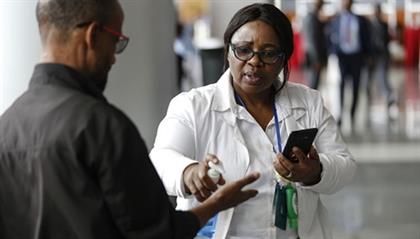
If social media comments on the quarantine in Polokwane, Limpopo, of 122 South Africans – being repatriated from Wuhan in China – are anything to go by, bad news awaits them back home.
Borrowing from the book of Leviticus 13:44, they could be “pronounced leprous and unclean” because they might spread the Covid-19 coronavirus.
My view is not on the merits or demerits of where they might be quarantined but on the social media comments on the matter and on Covid-19 in general.
Comments, especially on Facebook and Twitter, ranged from asking why Polokwane had been identified because it is not the capital city, to probing why those “sick” people were being taken to Limpopo and not to Thaba ’Nchu in the Free State.
A quick profiling of the people commenting showed that they include local and provincial government employees and those who could be considered leaders of society.
Uncle Google provides examples of employees who got into hot water for bringing their employers into disrepute through their comments on social media.
One wonders if the comments would have been the same if they had brothers, sisters, cousins or children among the 122 repatriated individuals.
Then boom. It turns out that seven of the 122 people being repatriated are apparently Limpopo citizens.
But, let’s get back to the social media comments. Social media law expert Emma Sadleir said in a radio interview that there was no “personal capacity” for professionals. This was because professionals were associated with employers in an online space.
Social media training, including associated legal and reputational consequences, is important to consider.
As the late Burkinabe president, Thomas Sankara, said: “A soldier without any political or ideological training is a potential criminal.”
An example of acting without considering the consequences relates to a National Health Laboratory Service employee, who could face disciplinary action for sharing a voice note falsely claiming there were a number of Covid-19 patients at a Durban hospital.
As I was reeling from the shocking social media comments, the evident support by Capricorn FM #JustDrive hosts to a tweet about pushing for South Africans travelling outside the country not to be allowed back in puzzled me further.
I tweeted them my two-cents’ worth about their power and influence and the agenda they were setting for listeners.
I said their views and approach to the matter were too simplistic.
The World Health Organisation (WHO) rightfully has declared the Covid-19 outbreak a pandemic.
At the time of writing, there were 16 confirmed cases of Covid-19 in South Africa, bringing the number in sub-Saharan Africa to 25 in total.
- Wash your hands with soap and water, or use alcohol-based hand rub;
- Cover your mouth when coughing or sneezing;
- Avoid close contact with anyone with cold- or flu-like symptoms;
- Thoroughly cook meat and eggs; and
- Avoid unprotected contact with wild animals or farm animals.
The government, especially the health department, has its work cut out in dealing with fake news and social media hoaxes about Covid-19, and needs to clarify what is meant by isolation and quarantine.
A video tweet by the Ndlovu Youth Choir was a breath of fresh air.
They shared a short video explaining some basic guidelines to try to dispel myths and misunderstandings about Covid-19.
Maubane is a public relations strategist and a social commentator. You can follow him on Twitter @MaleselaB
 | ||||||||||||||||||||||||||
Get in touchCity Press | ||||||||||||||||||||||||||
| ||||||||||||||||||||||||||
| Rise above the clutter | Choose your news | City Press in your inbox | ||||||||||||||||||||||||||
| City Press is an agenda-setting South African news brand that publishes across platforms. Its flagship print edition is distributed on a Sunday. |




 Publications
Publications
 Partners
Partners








